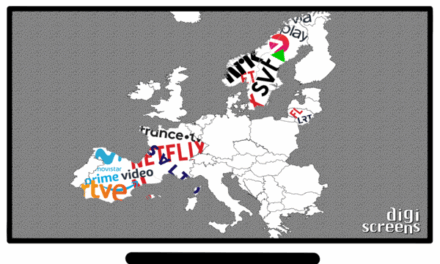Television continues to be a key site through which social and cultural power dynamics play out: behind the scenes, television struggles with traditional hierarchies that favour dominant discourses and people with multiple points of privilege. This is due to casualisation and long working hours remaining unsustainable for people for a number of reasons including caring responsibilities, non-normative bodies, or lower economic backgrounds. The onslaught on public service broadcasters who have a responsibility to become more inclusive (even if they often struggle with doing so), is unlikely to make this better. On screen, those productions that cater to already privileged audiences tend to be those allocated the highest budgets. This leaves people from less privileged backgrounds often under- or less well served. In addition, audiences particularly affected by cost of living crises are unlikely to be able to pay for the plethora of subscription services that are thought to currently drive the renewal of television (Lotz, 2018). What this makes visible is that although we may now have less work to do to point to the cultural relevancy and value of (some) television, the field of television studies cannot afford to lose track of the question of power when examining its many sites of cultural production. At this year’s Critical Studies in Television conference, we therefore want to place particular attention onto questions of power in relation to television as a social and cultural form. We invite papers, panels, posters, screenings, video essays, roundtables, and any other form of contribution on any aspect of television, but will prioritise contributions that engage with these questions of power. This includes both critiques as well as examples of good practice. Indicative – but not exhaustive – areas that could be examined are:
- What historical incidents are there that indicate shifts in power dynamics on or off screen?
- What do our collections and television archives say about (continuing or changing) power dynamics?
- What role do social and cultural hierarchies play in determining power structures within production cultures and in decisions made about content?
- What ways in are there for marginalised individuals and communities to find spaces of (self)representation?
- What evidence of change is there in terms of hierarchies of taste?
- What mechanisms are there to support those with non-normative bodies, lack of funds, caring responsibilities, etc. to enter the industry?
- Which audiences are perceived as valuable and/or in need of serving, and which ones remain overlooked?
- How do television’s economics impact upon issues of cultural and social hierarchies and how do they play out on and off screen?
- What strategies do marginalised audiences, individuals and communities employ to satisfy their needs?
Please submit your abstract of approx. 350 words per abstract (ca 1,000 words for a full panel) by 28 February 2023. This is a hybrid conference bringing together in-person and online attendees.
To submit your proposal, please follow this link: Vevox
Conference website: https://sites.edgehill.ac.uk/tvresearchgroup/2023/01/23/critical-studies-in-television-conference-2023/





